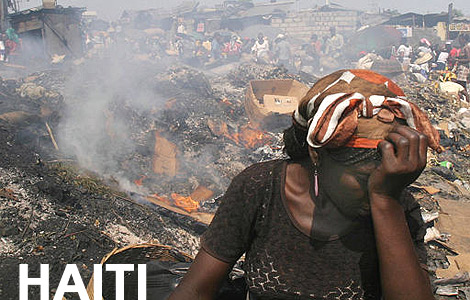 If you caught my last post about desktop images, I’ve got a new one—Haiti before the earthquake. There are several initiatives at BU Law emerging in support of Haiti—a student government-sponsored candlelight vigil, Haiti in focus during the annual Diversity Month, information from the Dean’s office detailing ways to stayed informed and contribute. I appreciate it greatly, with relatives sleeping in the streets of Port-au-Prince after their houses collapsed. It’s surreal to see and hear of the piled bodies yet have the pace of law school life continue, but what I’m learning isn’t altogether unrelated.
If you caught my last post about desktop images, I’ve got a new one—Haiti before the earthquake. There are several initiatives at BU Law emerging in support of Haiti—a student government-sponsored candlelight vigil, Haiti in focus during the annual Diversity Month, information from the Dean’s office detailing ways to stayed informed and contribute. I appreciate it greatly, with relatives sleeping in the streets of Port-au-Prince after their houses collapsed. It’s surreal to see and hear of the piled bodies yet have the pace of law school life continue, but what I’m learning isn’t altogether unrelated.
In Property with Professor di Robilant I found out that the first public accommodation law, essentially a prototype civil rights law mandating equal access and service to folks formerly enslaved, appeared here in MA in 1865 but was short-lived against the defense that government was interfering with the private property owner’s right to exclude anyone at will. Then the first federal-level public accommodation law, progressive in 1875 even by post-Civil Rights Era standards and sponsored by Congress members from MA, was similarly short-lived for similar reasons. I imagine that having the victory of fairness overturned might have hurt more than not having the victory in the first place.
If you caught my post further back questioning fairness out of the ether—which is to say, translating abstract truths into criteria for policy decisions—I’m now a bit deflated on moral imperatives being the magic behind the international response to the earthquake, anti-discrimination legislation, celebrations of MLK Jr. Day and even high-stakes campaigning in the MA Senate race about health care reform (incidentally the election also determined who would represent MA in Washington). But don’t get me wrong, I’m not discouraged; I’m just seeing things anew in a sobering light.
I have an inspiring friend who has spent the last few decades jumping between elite Boston health professional circles and everyday Haitian rural communities, preferring the latter in part for being, in his words, an area of moral clarity—a scene where extreme disparities make it clear what the right thing to do is. He recognizes that as institutional decisions go, acute rescue is an easier sell than long-term public welfare, and effecting equal international participation lacks the earlier clarity and urgency altogether—the public accommodation laws scenario on an international scale.
There is much work to be done. My wife got me into the habit of compensating myself for doctor visit co-pays by leaving with an interesting magazine from the waiting area, so much so that on a doctor visit this weekend with no co-pay I took an outdated New Yorker anyway for an article about Arthur Fisher Bentley’s 1908 book The Process of Government: A Study of Social Pressures. Nicholas Lemann writes, “try to understand the civil-rights era as having been propelled by a movement that African-Americans organized to make life better for themselves, rather than by a miraculous increase in the appeal of racial equality to the nation as a whole.” My dad’s version of that sentiment is: “In life you don’t get what you deserve, you get what you negotiate.” That’s lawyer territory.
